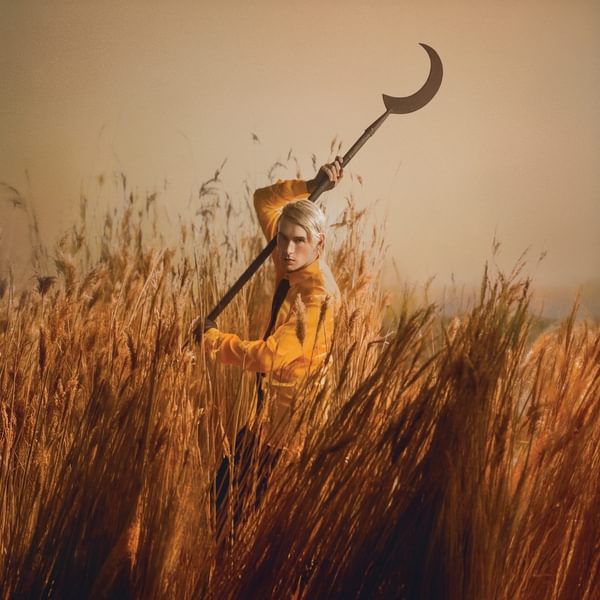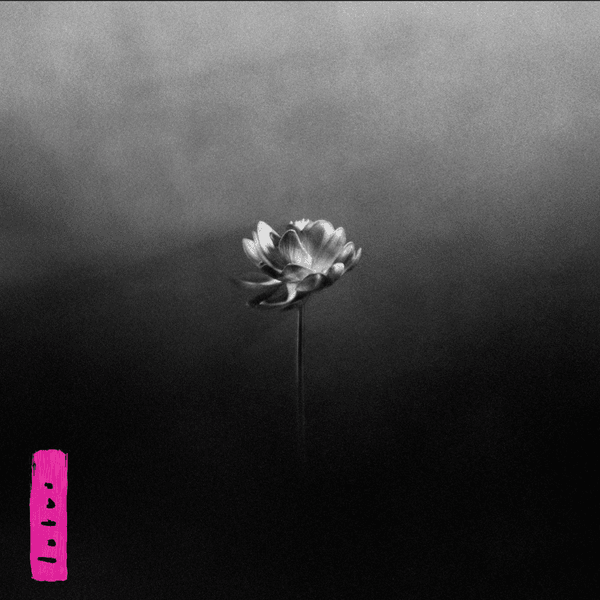
Fortuna Pop! turns 15 : The Line of Best Fit speaks to label founder Sean Price
It’s the afternoon prior to the second of Fortuna Pop‘s 15th birthday shows at the Scala, and label founder Sean Price is in relaxed form when we meet at The Lexington, a mere stone’s throw from the venue of the evening’s festivities to follow. Surprisingly relaxed, seeing as he’s just had the opening act of the evening pull out owing to illness. He’ll remain the picture of laid-back calm for the duration of our meeting (despite having to repeatedly break off to find a replacement band), unleashing an impish grin and a pair of sparkling eyes whenever he’s about to say something contentious or hilarious (which is quite often) and forming a power-fist with his right hand that would’ve been the envy of every 90s boy band when he wants to illustrate his point.
But then again, maybe his calmness isn’t such a surprise after all. While the label is now in rude health, thanks in part to a roster including The Pains Of Being Pure At Heart, Allo, Darlin’ and Darren Hayman, the early days of the Fortuna Pop! label are full of tales of overcoming adversity. “We just had no idea what we were doing, really” summarises Sean, helpfully. The story of how Fortuna released its first 7” has it all. First there’s youthful exuberance: “We decided to make that into a 7” single because it seemed like an exciting thing to do”. Then there’s technical naivety: “I remember Key Production saying we needed to give them the master on DAT tape, and we didn’t know what DAT tape was. To us, cassettes were ferric, chrome and metal, and metal was the best! We had quite an expensive tape player – but not a digital machine – so we just recorded it onto metal tape, so it was actually cut from metal tape which I don’t think is really the industry standard at all!”. Finally, there’s disorganisation: “I remember going into Key Production and them giving me a list of distributors to help me get the record out, and for some reason I just ignored it. We went round trying to sell copies of the record to record shops, mainly in Camden. People would grudgingly take five copies on sale-or-return. In the year after I released that record I still had pretty much all the copies in my house. Mainly underneath my bed.”
Airplay from the likes of John Peel, and press from the likes of Record Collector (“I think they described as ‘a spastic Lou Reed piggy-backing Iggy Pop’ or something like that, which was a cool review!”) allowed the label to slowly build to what it is today. Does the basic ideology remain intact or has it changed beyond all recognition over the past 15 years? “My ideology has remained pretty much the same and that is to get the music out to as many people as possible. I might not have known what I was doing but even from day one, I was thinking about who I could send promos out to. I didn’t really know how I could do it but I always wanted to get press and make those bands bigger. It sounds ridiculous but I wanted Twinkie to be on Top Of The Pops. I’ve never been against promoting the bands, because that’s what it’s all about – getting the music to a wider audience. I don’t think my ideology has changed, it’s just that I’ve got better at doing what I wanted to do to begin with.”
But throughout the past 15 years there have been difficulties, with arguably the greatest being the dismissing of Fortuna’s output as twee. Surely it’s been limiting – damaging, even - for the label to have such a tag? “I do think there was a certain… playing with imagery that Amelia Fletcher’s bands did very well but there was always a bit of an edge to the songs, always something far deeper. Then I look at some bands who came afterwards who listened to Tallulah Gosh and Heavenly who didn’t seem to notice the political element to it, and all they’ve kept are the Hello Kitty hair slides and knee-socks. They’ve missed the point by such a long way, and I feel those bands deserve to be labelled twee. But that’s not what I do. I don’t think the bands that I’ve released deserve to be labelled twee. They’re not being affected or childlike, which is what twee means.”
It’s clear that this is a topic that’s close to Sean’s heart as it triggers the most animated and urgent reaction of the hour in which we talk. “I feel that some of the things that I’ve done, even if it has an indie-pop sound, has something about it – especially lyrically – that takes it away from that kind of ‘let’s skip through the flowers’ crap that a lot of indie-pop bands seem to peddle, and that has no substance whatsoever. It’s just a piece of shit. I want to get my bands heard by people, so if someone labels one of my bands twee, then I’m left thinking ‘Oh god, people aren’t going to listen to this now, because it’s been labelled twee.’ ”
He relaxes. The impish smile returns “When we did the tenth anniversary at the Luminaire, there were loads of interviews with the bands and all the bands were confronted with the twee question and they were all horrified. None more so than The Lucksmiths, I seem to remember. I remember being quite proud that all of my bands took offence that they/the label might be called twee…” The following two sentences are told in between bursts of wheezy, incredulous mirth … “Then a couple of years later The Lucksmiths gave me their new album with a song on it that told the story of a lost mitten. Then I thought ‘hmm, that IS twee!”.
Talk soon turns to the industry as a whole. The likes of Radiohead’s King Of Limbs and Bjork’s Biophilia have turned albums into massive near-extravaganzas. Is that now the only way to guarantee coverage and success? “Music is big business. People who release the Kings Of Leon album could just as easily be selling washing powder. There’s a lot of money in music and obviously they’re trying to get as much coverage and press and what have you. Maybe that’s how you do it these days – these huge events” Sean opines, bluntly. “There’s nothing really special about Ellie Goulding. She supported The Pains Of Being Pure At Heart at The Garage and she was so dull that everyone just talked all the way through her. She’s obviously got major label backing behind her, the Sound Of 2010 thing happened, and suddenly she’s number one in the charts. There’s nothing to that record. There’s no way that without label backing and what have you that that record would’ve been number one. It’s all about the marketing and promotion behind it. It’s bizarre. The sale of records isn’t based on the merit of the music.”
15 Years Of Fortuna POP! – Nov 1st, Scala, London
But speaking of selling records, if Sean were to start the label now, does he think the shift towards non-tangible formats would make it easier? “I always find it very difficult just to release things digitally. I do downloads for singles but that’s more of a promo thing, really. I think there’s something rewarding about making something. I do make a fair bit of money out of my digital sales. It’s a nice steady income that I don’t have to make anything for, and that’s really helpful for me at the moment, running the label. I think making a physical product is very important to me and if it went totally towards digital formats I’m not sure I’d be interested in running the record label any more. It’d be more cost effective to do it that way, yeah. But I feel there’d be a loss of visibility.”
As a label that’s associated with one particular genre of music, there must surely be an element of pressure when signing artists and releasing records, though? If the label’s seen as a tastemaker and releases a sub-par record, surely it can damage the label’s reputation? “If I like something, I’ll release it. How am I going to know if someone’s going to think it’s duff? I try and release things which I think are interesting which generally encompasses a lot more than what is perceived as indie-pop, and things seem a bit more appealing to me if it’s something a bit different. You know, I like Kylie and Beyoncé and all that stuff as well as Felt and what’s perceived to be really indie-pop. I try to break away from releasing things that are just perceived to be indie-pop. There are a lot of labels that are like that and I’d like to think that I’m one of those. I mean the Darren Hayman album is a set of piano ballads – it’s not really indie-pop. The Crystal Stilts album feels like The Doors meets The Velvet Underground. Again, it’s not really indie-pop. I like to release things that reflect my musical taste.” Sean pauses to reflect briefly, before emitting a chuckle. “There’s also a perversity in releasing things that aren’t indie-pop. I like to fuck people off in that I like to release things that they might not like. That was one of the reasons why I did the Pipettes record. I thought it was a great record and I also thought ‘everyone’s going to really fucking hate this, let’s release it just to piss everybody off!’ ”
While there’s no mystique surrounding Fortuna – Sean’s as approachable a label boss as you could wish to meet, his roster comprising the most approachable musicians – does he think there’s still a place for mystique in a label? I cite the revered cottage industries of Postcard in Glasgow and Sarah Records in Bristol. “I wouldn’t say there’s a mystique about them. I mean if Edwyn was the template for Morrissey then Alan Horne was the template for Alan McGee. The belligerent snotty-nosed upstart who thinks he knows better than everyone in the establishment. I think there’s a mystique around Postcard because it was so small. When I was doing The Pains Of Being Pure At Heart record I had A&R men at the majors congratulating me for making it happen while seeming that there was no hype, and how it happened organically. I was thinking ‘OK… I’ve a budget a millionth of what you have. I’ve been trying as hard as I can! To you it seems natural, but I’ve been busting a gut trying to get it out and heard by as many people as possible’. They genuinely believed I’d made it happen organically while at any moment I could unleash this wall of hype to carry the record along. I think part of the mystique surrounding Postcard is because the records are so hard to get hold of because Alan Horne didn’t know what the fuck he was doing and because of the times that it happened in.”
The future of Fortuna Pop! looks very rosy indeed. Not only is there a dedicated fanbase (as witnessed by the turnout to the anniversary shows held at the Scala) but 2012 sees new records from Evans The Death, Allo, Darlin’, Bearsuit and Tender Trap. That’s before Darren Hayman releases god knows how many albums, as he did this year. So while the label’s on the up, where does Sean see the industry model going? “We did that Independent Record Label Market thing, and on the Mute stall all that Daniel Miller sold were chocolate cakes. They had a QR code attached to them. You bought your cake, you ate your cake, then you downloaded your music. He didn’t sell any vinyl or records at all. Mr Miller has a record for being an innovator, maybe that’s how we’ll go in due course. We’ll just sell cakes!” The trademark smile returns for a final encore, along with a flash in his eyes. “That’ll sit well with the twee kids, right?”
To read about the Fortuna Pop! anniversary shows, click here.
By Gareth Ware
Get the Best Fit take on the week in music direct to your inbox every Friday

Patrick Wolf
Crying The Neck







